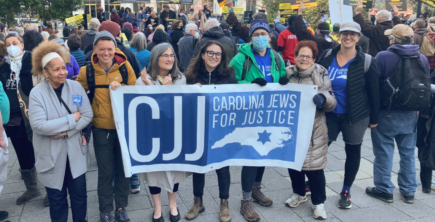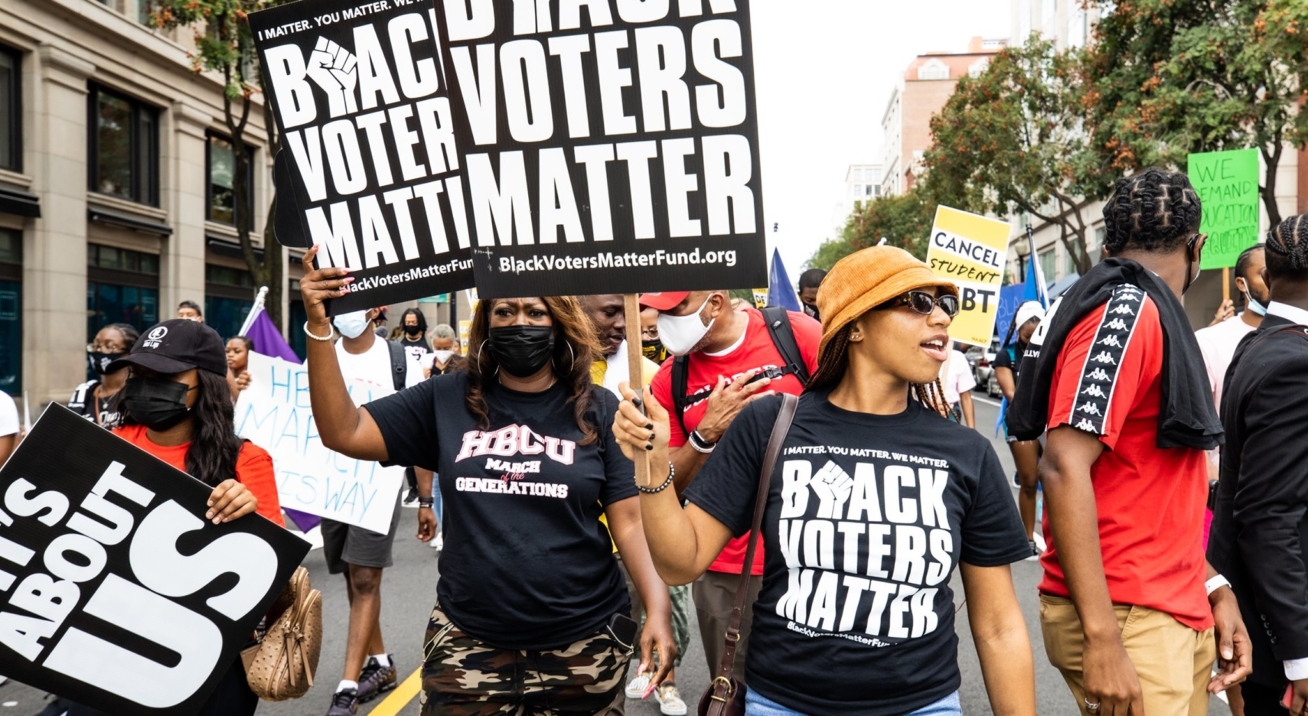
Our Community

“Struggle is a never-ending process. Freedom is never really won; you earn it and win it in every generation.” — Coretta Scott King
Today marks Juneteenth, a day to honor Black freedom, Black resilience, and Black joy. It’s also an occasion to reflect on the progress we’ve made and the challenges we still face in the movement for racial and social justice. To give Juneteenth the significance it deserves, it is our collective responsibility to examine our past, learn from it, and chart a new path toward transformative change.
Juneteenth has long been recognized as “Freedom Day” by Black people in Texas to commemorate the day Union soldiers — many of whom were Black — informed all remaining enslaved people in the state that they were free, two and a half years after President Lincoln issued the Emancipation Proclamation.
Thanks to Opal Lee, known as the “grandmother of Juneteenth,” we now commemorate the end of slavery as a federal holiday across the United States. For decades, Lee campaigned to make Juneteenth a national holiday, leading 2.5-mile Juneteenth walks all around the country, symbolic of the two and half years it took for enslaved people in Galveston, Texas, to learn they were free.
In many respects, Juneteenth is both a celebration of freedom and an acknowledgment of our nation’s painful history. It celebrates the resilience of millions of Black people who were enslaved, but also recognizes how their uncompensated labor fueled the economy and generated tremendous wealth for many white families and their descendants. For those of us working to address the structural inequities inherent in our social, political, and economic systems, this sobering reality underscores the need to shift power and resources to Black-led, Black-serving organizations. After all, despite the commitments that philanthropy made in 2020 during our nation’s racial reckoning, it was reported just last year that the majority of Black-led and Black-benefiting nonprofits operate on less than $500,000 a year and nearly one-third operate on a budget of less than $30,000.
Since the murders of George Floyd and Breonna Taylor sparked global outrage, widespread protests, and calls for systemic change, we’ve seen an aggressive and emboldened attack on all spaces of social justice. Conservative leaders and groups continue to dismiss the public discourse around public safety and systemic racism, to discount the importance of diversity, equity, and inclusion initiatives, and to weaponize dangerous narratives about critical race theory.
These tactics have been used to gut affirmative action, limit discussions on race and gender in schools and workplaces, and employ gerrymandering to dilute the political power of Black communities. These same maneuvers are being employed to restrict funding for initiatives aimed at closing the racial equity gap.
The current sociopolitical climate mirrors the Reconstruction era following the Civil War, a period marked by significant advancements for Black Americans, but that was later met with severe white supremacist backlash. The South implemented the Black Codes to limit the rights of Black Americans, leading to economic servitude through sharecropping and setting the stage for Jim Crow laws. The Supreme Court also ruled in 1876 to limit federal prosecution of civil rights violations, which weakened protections for Black people.
This year’s presidential election will mark yet another critical juncture for our nation and the state of democracy. The outcome of the election will have far-reaching consequences for our racial and social justice movement, society, planet, and future generations. Restrictive voting laws disproportionately affect Black voters. Judicial appointments, including potential Supreme Court justices, will shape civil rights laws impacting issues such as voting rights and criminal justice reform, and the future of reproductive rights.
As we approach November, Black grassroots organizers across the country are working to protect democracy by combating voter suppression, gerrymandering, and misinformation and disinformation campaigns aimed at Black communities to discourage voter participation. Black women, in particular, whose work to uphold the integrity of our democracy too often goes unrecognized, are playing a crucial role in mobilizing voters, challenging systemic inequities, educating about voting rights, and advocating for fair elections.
To support this vital work, Tides committed $200 million to 501(c)(3) and 501(c)(4) organizations leading voter engagement and mobilization efforts, particularly among Black communities and other communities of color, young people, and other under-resourced groups.
Tides remains steadfast in our mission to center the leadership of proximate changemakers and their communities. Approaches like multiyear, unrestricted funding, participatory grantmaking, and trust-based philanthropy are crucial for fostering long-term, systemic change. We are calling on the social sector to sustain efforts to shift power to ensure a just and equitable future for all of us. The words of the poet and civil rights activist Maya Angelou still ring true today: “No one of us can be free until everybody is free.”
This Juneteenth, consider supporting these organizations that center Black women and Black voters:

Read the stories and hear the voices of social change leaders fighting for justice.